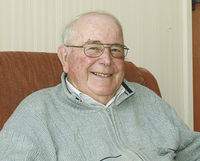We have seen that Session I of Vatican II ended at the end of 1962 with no documents passed; but the bishops had asserted the right to elect their national lists to form the commissions who would draw up new documents after rejecting those drawn up mainly under curial supervision.
But the period between the first and second sessions was an active and historical one because the Pope died and a new one was elected.
 He sat down to write his encyclical Pacem in Terris (Peace on Earth). His many years as a papal diplomat in Orthodox and Muslim countries and latterly in France where he had to try and make peace between the Nazi-sympathetic French bishops in Vichy and the loyalist bishops in the North, gave him much experience.
He sat down to write his encyclical Pacem in Terris (Peace on Earth). His many years as a papal diplomat in Orthodox and Muslim countries and latterly in France where he had to try and make peace between the Nazi-sympathetic French bishops in Vichy and the loyalist bishops in the North, gave him much experience.
He persuaded three Vichy bishops to resign and united the French episcopate. His long years of diplomacy especially in peace-making and his awareness of other cultures and religions fitted him ideally for writing the encyclical. In the Cuban crisis he had been in contact with both President John Kennedy of the United States and Nikita Khruschev of the Soviet Union and helped to ease the communication between them until they found common ground.
In his encyclical he suggested many ways of finding peace among people and nations and came up with the rather novel way of solving problems between people of vastly different views by getting them to sit together and seek common ground, however slight, gradually building up more confidence in each other.
Pacem in Terris was promulgated a few weeks before his death. On his deathbed he bore much criticism in conservative, even in Catholic papers. His encouragement of bringing even enemies together changed the law for Catholics in Italy who his predecessor, Pius XII, had excommunicated for voting communist or even socialist. Catholics now felt free to vote accordingly. In the elections the Christian Democrats lost by two million votes.
The ‘opening to the Left’ became policy under his successor; but John in his last days had to suffer the brunt of this new turn of events. He died peacefully on June 3, 1963.
The world reacted with profound sorrow so deeply had he touched the hearts of the entire human community. One of his last prayers for the Council and unity was not only for the church but for humankind.
‘It is not that the gospel has changed,’ he said. ‘It is that we have begun to understand it better.’
It took five ballots before the cardinals voted for Cardinal Giovanni Montini, Archbishop of Milan. He was moderately in favour of the ‘progressives’ but had spoken only twice at the council. His messages to the people, published in many Italian newspapers, were optimistic and full of praise for many of the ‘progressive’ interventions.
He took the name of Paul VI. From the start he favoured continuing the Council.
Paul VI came from a middle-class and devoutly Catholic family in Brescia whose father was both a lawyer and politician of the Catholic Party dissolved under Mussolini. His mother was president of the Catholic women’s association.
Poor health interrupted his secondary studies in the Jesuit College and Montini completed them privately. He even had dispensation to do his seminary studies privately. He greeted everyone in a friendly way then went home, avoiding the rough and tumble of association with other boys.
He was always solemn in public but communicated well on a one-to-one basis. He was ordained in 1920 at 23 and obtained his doctorate in Canon Law the same year. He served in the Curia’s Secretariat of State in 1922 going in the same year to the Academy of Nobles, the Vatican’s diplomatic school, and, after six months at the nunciature in Warsaw, returned to work in the Secretariat of State where he was named assistant to the Secretary of State, Cardinal Pacelli, who became Pius XII in 1939.
For a time Montini was chaplain to the Catholic student movement in Rome and then nationally. He was largely responsible for organising the Holy Year in 1950 and the Marian Year in 1954, the year he became Archbishop of Milan.
John XXIII made him a cardinal in 1958. He threw himself into work among the poor and workers of Milan and was noted for his holiness and integrity.
However, because his character so overshadows Vatican II and will emerge during the third session especially, it is worth noting his acute sensitivity and his agonising over decisions with results that often caused great surprise.
His 30 years or so in the Curia and lack of experience in a parish showed up from time to time. More on that later.
Paul VI’s intention to continue the Council showed before its opening on September 29, 1963. In his opening address, the Pope stated that those classical four points of the church – unity, catholicity, holiness and apostolicity – are to be used as imperatives. The papacy is service to all.
With these strong words, Session II, which we will write about next time, began.